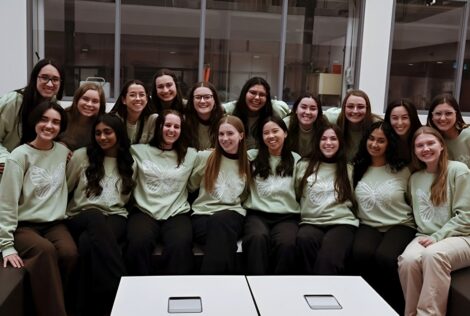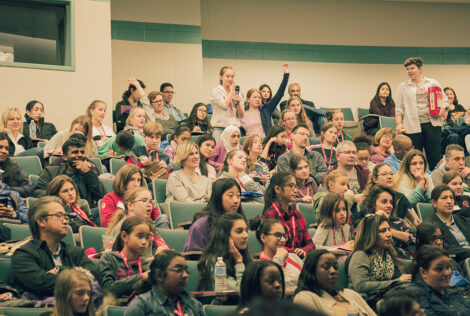
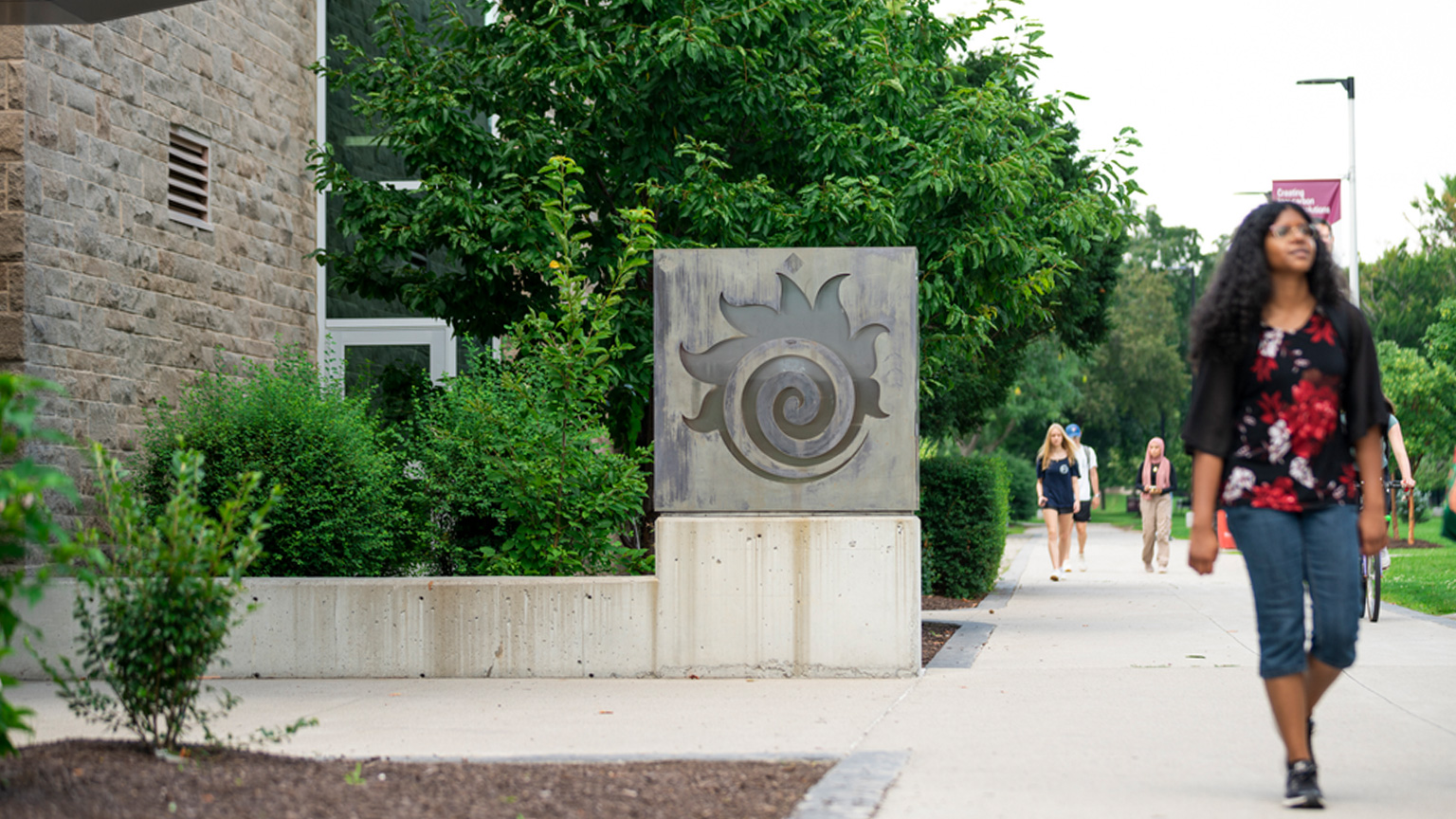
Azucena González Gómez, who completed her Chemical Engineering graduate degree under assistant professor Zeinab’s Hosseini-Doust’s supervision, returned to her alma mater to have a conversation with Zeinab about women supporting women in STEM, the power of believing in yourself and not settling. For anything.
Here’s part of their conversation:
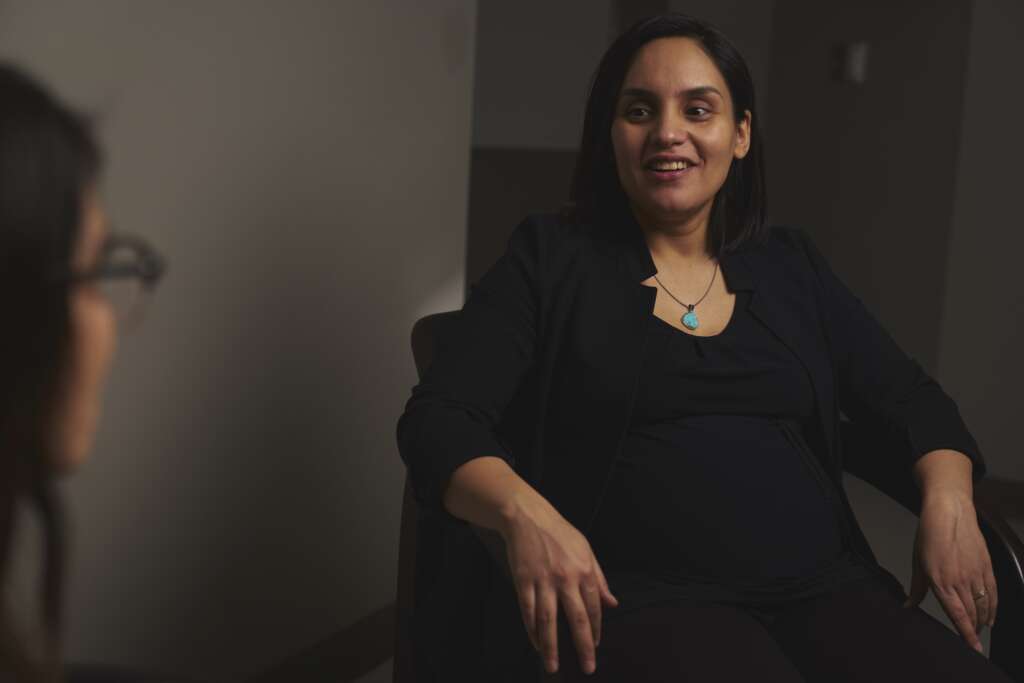
Azucena: What has been the most rewarding part of mentoring female graduate students?
Zeinab: It takes me back to my own experience because I had a female mentor. I try to offer my own experience to students and what I wish I had more of. Kind of reliving the experience has been a very rewarding part, and also seeing your students grow. That’s the best thing. Did you find having female mentors useful in grad school?
Azucena: I could ask questions I don’t think I could’ve asked male mentors, for example, “When do you think is a good to plan for having a baby?” I see that you’re able to handle these two things that in my mind are full-time jobs. It shows that it’s possible. I read an article that said female mentors believe more in the capabilities of female students than male mentors. I enjoyed that you knew I was capable.
Zeinab: I don’t want to downplay this; there are challenges in the environment and people’s perception, but to me the most important and significant challenge for women in engineering and in academia is believing in ourselves. It’s very much an internal battle. Once you believe in yourself and your abilities, you can face all of the challenges outside.
Azucena: Is there any advice you can give a young female engineer to believe more in herself?
Zeinab: What I see a lot of in girls in engineering is that they tend to lose hope faster because you look at your colleagues and see that they’re doing well and think, “Well, it looks so easy, but for me it’s difficult.” Everybody works hard to get to where they are, even if they make it look effortless. Don’t be demoralized. Don’t lose hope. Engineering is tough; there are times where you may feel like you can’t go on, and everybody experiences that. When did you first know you were more attracted to engineering?
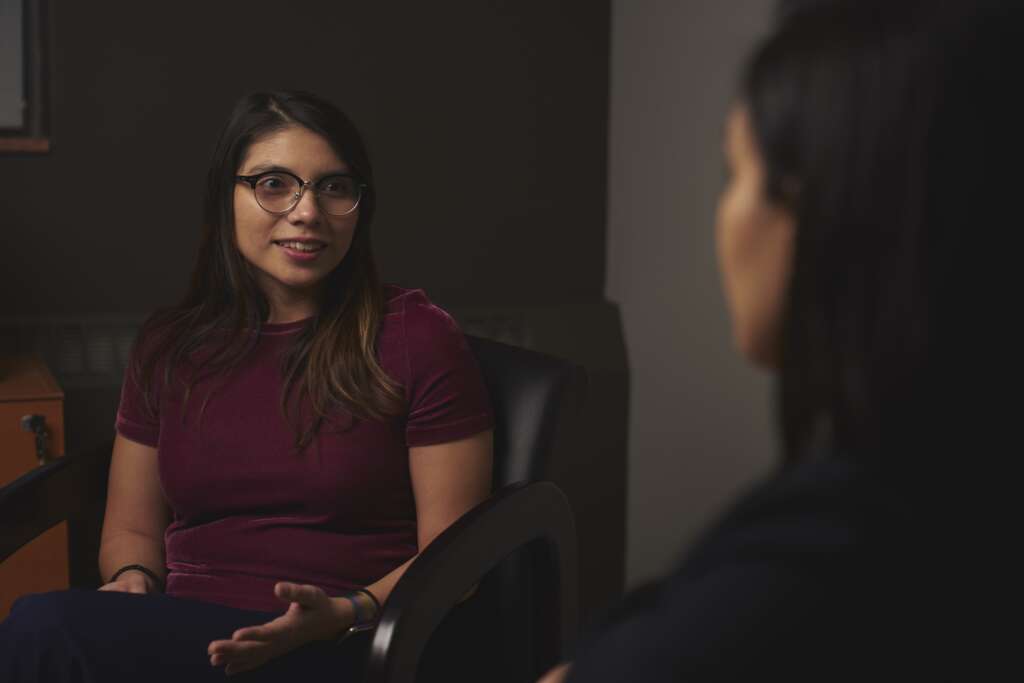
Azucena: Whenever something was broken at home, my parents would give it to me to play with. Most of the times I would open it, close it back again, not change anything, and it would start working. I think my friends thought I was brilliant because I was fixing electronics, so maybe there. How do you want to see the field change in ten years?
Zeinab: I’d like to get rid of the borders between disciplines. I do a lot of microbiology and I find myself frequently having to explain to people why I’m doing microbiology when I’m not a microbiologist. I’m an engineer, but when it comes to research, you follow your curiosity. For women in engineering, not having these perceptions as to what you should and shouldn’t do because of some arbitrary classification. Getting rid of molds is what I’d really like to see, and we’ve moving in the right direction, but I’d like to see those borders disappear. What does International Women’s Day mean to you?
Azucena: Here in Canada, it’s really nice because there’s people from everywhere. We have good opportunities but it’s also maybe a chance to look at countries where women don’t have as good of opportunities as we do. Also, downplaying the molds that women have to be pretty, women have to be skinny, all these “have-to’s.” You have to be cute, you have to be nice. All these molds that you’re forced into before you even know what you want in life. We have to break them so that women can be whatever, even if they want to be cute, but if they want to — not that they have to. What does International Women’s Day mean to you?
Zeinab: To create opportunities for women and to attract more girls into STEM fields, it’s not only girls we should be working on and at the university level — it has to start at a much younger age and be with boys and girls. There’s something to be said about providing good role models for girls and women to follow. I wouldn’t have been brave enough to choose this job if I didn’t have good role models. I had role models that showed me that it’s not just possible, but okay to work hard as a woman, it’s okay to be ambitious, it’s okay to follow your dreams. You don’t have to settle for anything.

